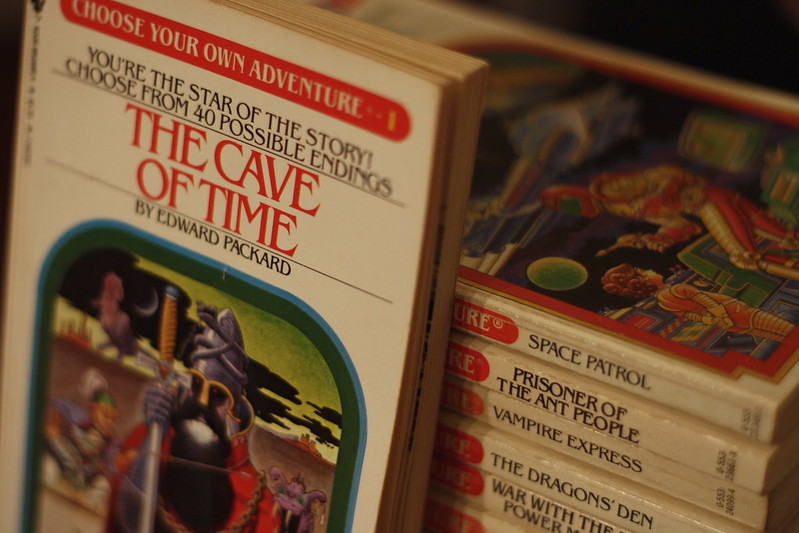Choose Your Own Productivity Adventure
No one’s perfect, especially when it comes to managing tasks at work.
Maybe you left in draft form an email you thought you sent (I’ve done that), you got an important assignment from someone in the hallway and forgot about it when you sat down at your desk (a former bad habit of mine), or you chose to do the “easy, not-due-soon” thing rather than the “harder, due-much-sooner” thing (my signature move for a few years). It happens!
Over here on the Communications team, we’ve gathered a few practices that help us stay on top of things. We’re not authorities on this nor are we perfect, but we hope a few of these tools can be useful to you in your day-to-day work. Everyone’s workload and personality are different, so if you have a productivity tip that works for you that you don’t see here, send me an email and let me know what it is.
To-Do Lists
A reliable to-do list is often the core of a productive person’s method. Perhaps it’s a physical notepad where you list only the tasks for today. Maybe it’s a running list and you highlight important things. Maybe it’s digital, for which there are many options (here’s my personal favorite), and digital options sync with your phone. The possibilities are endless.
Daily Task Assessment
Take some time when you arrive at work to identify what you can expect to accomplish today. Write it on a white board, or make yourself a sticky note to make it more concrete. Picking your tasks to focus on at the start of the day can really help you focus and be efficient at a manageable number of tasks.
Time Blocking & Chunking
Time blocking is the idea that you set aside time to be at your desk, away from meetings. On our team, we try to keep Tuesdays and Fridays open and meeting-free so that we can spend those days being productive at our desks with fewer interruptions and less time away.
Time chunking is similar: set events in your calendar that define exactly what you will do during that time. For example, “Emails,” “Review/Approvals,” or “Research” could all be time chunks that you define to make sure that work or communication gets done. This helps you defend your time from everyone, even yourself!
Action/Question
There are two ways to respond to a task: doing it, or asking follow-up questions to get clarity. The “middle” choice we try to avoid is “not doing it because we haven’t asked enough clarifying questions.” This was a signature move of mine for several years.
Email’s Not Awesome, so Be Awesome at Email
No matter your role, being someone who communicates clearly and reliably via email will do wonders for yourself and your team. Check out these 9 Rules for Email from the co-founder of Google.
Reflective Listening
Talking’s easy, communicating is hard. At the end of a conversation with someone, summarize what was discussed to ensure that you’re both on the same page. If someone says something incorrect or confusing, be sure not to use this tactic passive-aggressively.
Underpromise, Overdeliver
When telling someone when they can expect something from you, give yourself extra time. For example, if it’s Tuesday and you get assigned something typically takes a day, say “I can get that to you this week” instead of “I can get that to you tomorrow.” Let’s say you end up delivering it to them on Thursday. If you said “this week,” you’re on time. If you said “tomorrow,” you’re late.
Do be careful with under-promising. Avoid making a huge under-promise that gives the impression the task isn’t important to you; if a task should take a week, don’t say that it will be done “in the next six months.”
The 2-Minute Rule
When you look at your to-do list or get a new task from someone, can it be done inside of two minutes? If so, go ahead and do it right now and get it done with. If you wait, many factors may will all add unnecessary time to your day: managing your workload with that task added, trying to remember to do it later, and possible follow-ups from the person waiting on it. As always, don’t work so fast that you introduce mistakes into your work.

 Derek Bruff, Flikr - Creative Commonds BY-NC 2.0
Derek Bruff, Flikr - Creative Commonds BY-NC 2.0


